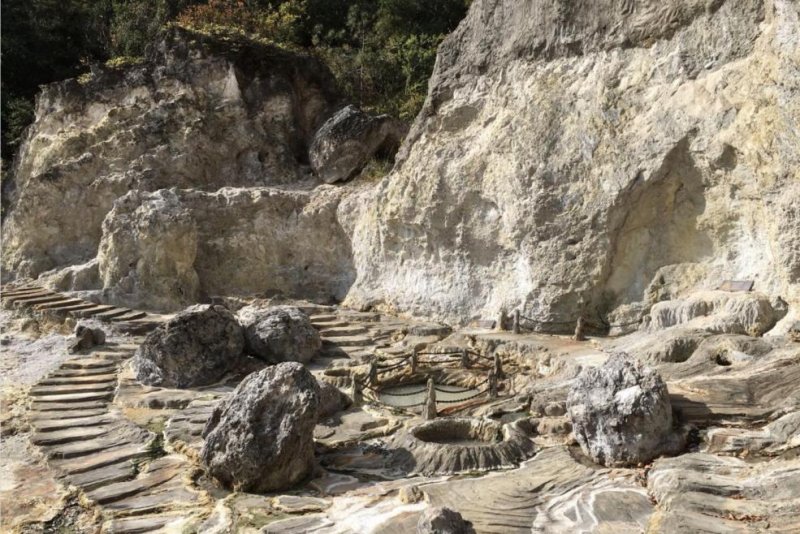Microbe samples collected from the Tengchong Yunnan hot springs in China helped scientists identify an entirely new archaea phylum. Photo by Jian-Yu Jiao/Sun Yat-Sen University
April 23 (UPI) -- Researchers have identified a new class of microbes that digest bits of dead plants without emitting methane, a potent greenhouse gas.
According to a new study, published Friday in the journal Nature Communications, novel microbes, found in hot springs and geothermal sediments, could play an important and under appreciated role in the global carbon cycle.
"Climate scientists should take these new microbes into account in their models to more accurately understand how they will impact climate change," lead study author Brett Baker, assistant professor at the University of Texas, said in a press release.
Baker and his colleagues classified the microbes in a new phylum, named Brockarchaeota for the late microbiologist Thomas Brock, who passed away early this spring. Brock pioneered the discovery and study of microbes in the hot springs of Yellowstone National Park.
Brock also developed a DNA-amplification tool called polymerase chain reaction, or PCR, which fueled tremendous advances in gene sequencing technologies -- including the standard test used to detect COVID-19 infection.
"The description of these new microbes from hot springs is a fitting tribute to Tom's legacy in microbiology," Baker added.
Scientists were able to identify the new class of microbes by sequencing bits of DNA from samples collected from hot springs in China and hydrothermal sediments in the Gulf of California.
Machine learning algorithms helped scientists analyze the microbes' novel genomes, and pinpoint genetic sequences responsible for the ways the microbes capture nutrients, produce energy and generate waste.
When researchers surveyed microbe genomes from a variety of global databases, they found commonalities between the newly sequenced samples and those collected from hot springs in South Africa and Wyoming's Yellowstone -- specimens previously classified as "uncultured microorganisms."
"There were genetic sequences going back decades, but none of them were complete," said first author Valerie De Anda.
"So, we reconstructed the first genomes in this phylum and then we realized, wow, they are around the world and have been completely overlooked," said De Anda, a researcher with the Austin Marine Science Institute at the University of Texas.
The newly named microbes are not bacteria -- they belong to a group of microorganisms called archaea.
Previously, scientists assumed all plant-eating archaea produced methane, but the new class is capable of breaking down organic matter without generating methane.
"They are using a novel metabolism that we didn't know existed in archaea," said De Anda.
"And this is very important because marine sediments are the biggest reservoir of organic carbon on Earth. These archaea are recycling carbon without producing methane. This gives them a unique ecological position in nature," said De Anda.
Scientists are only just beginning to gain insights into the biochemistry of these new microbes, but researchers hypothesize that the secrets of the Brockarchaeota phylum could inspire breakthroughs in biotechnology, such as the production of new kinds of biofuels.















